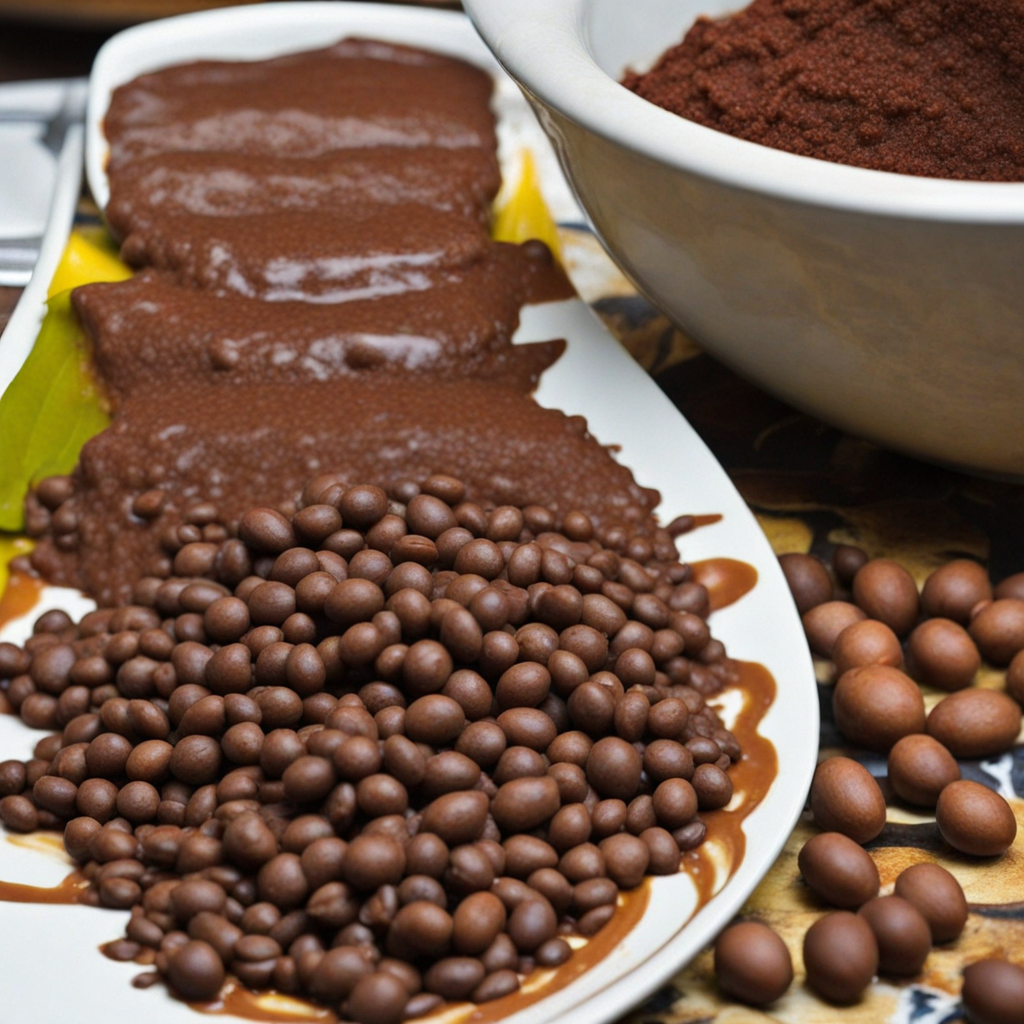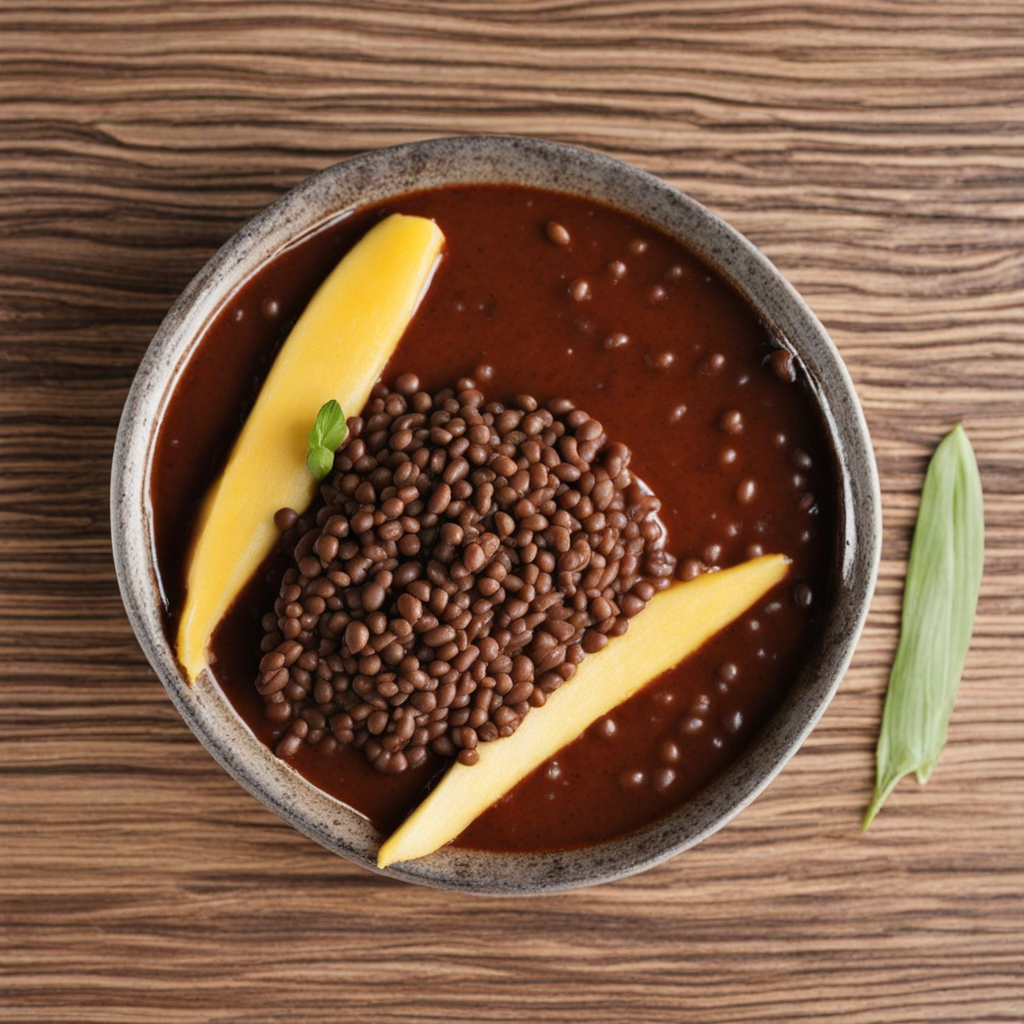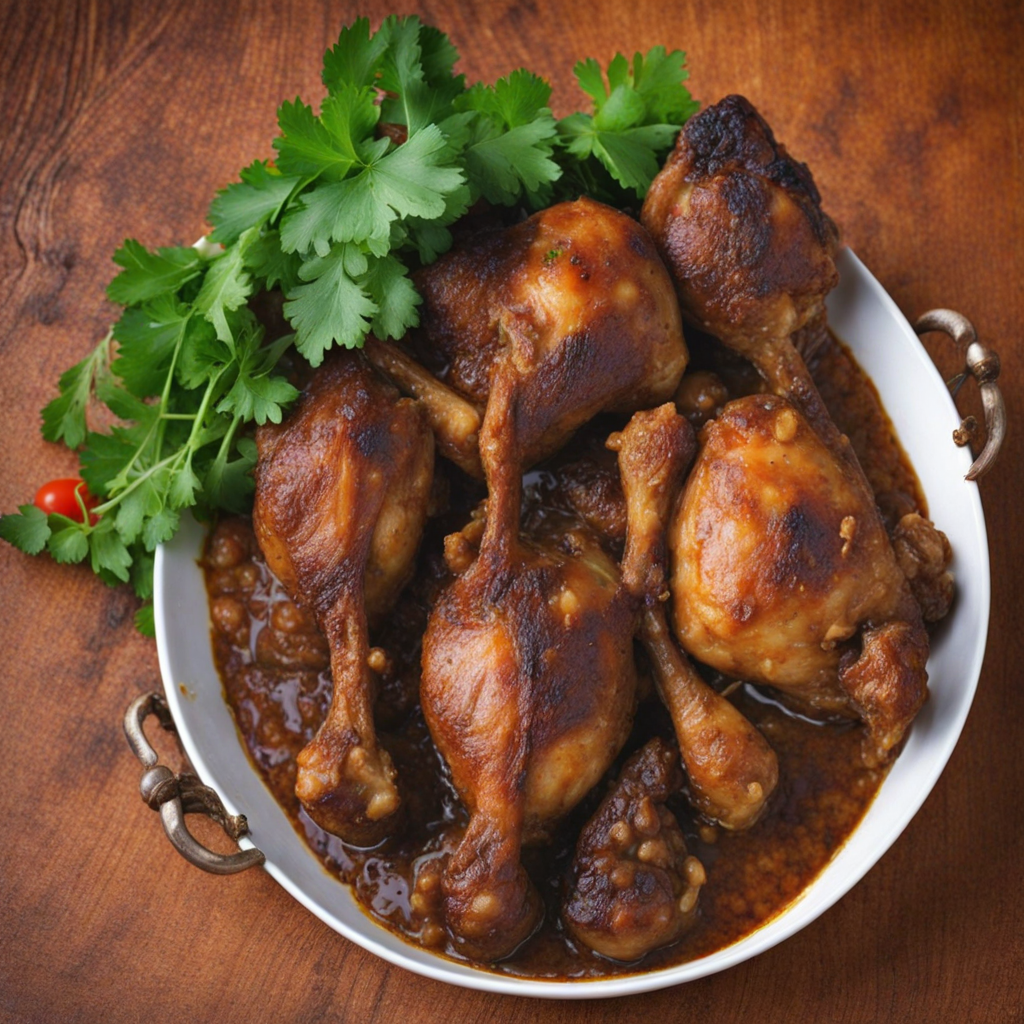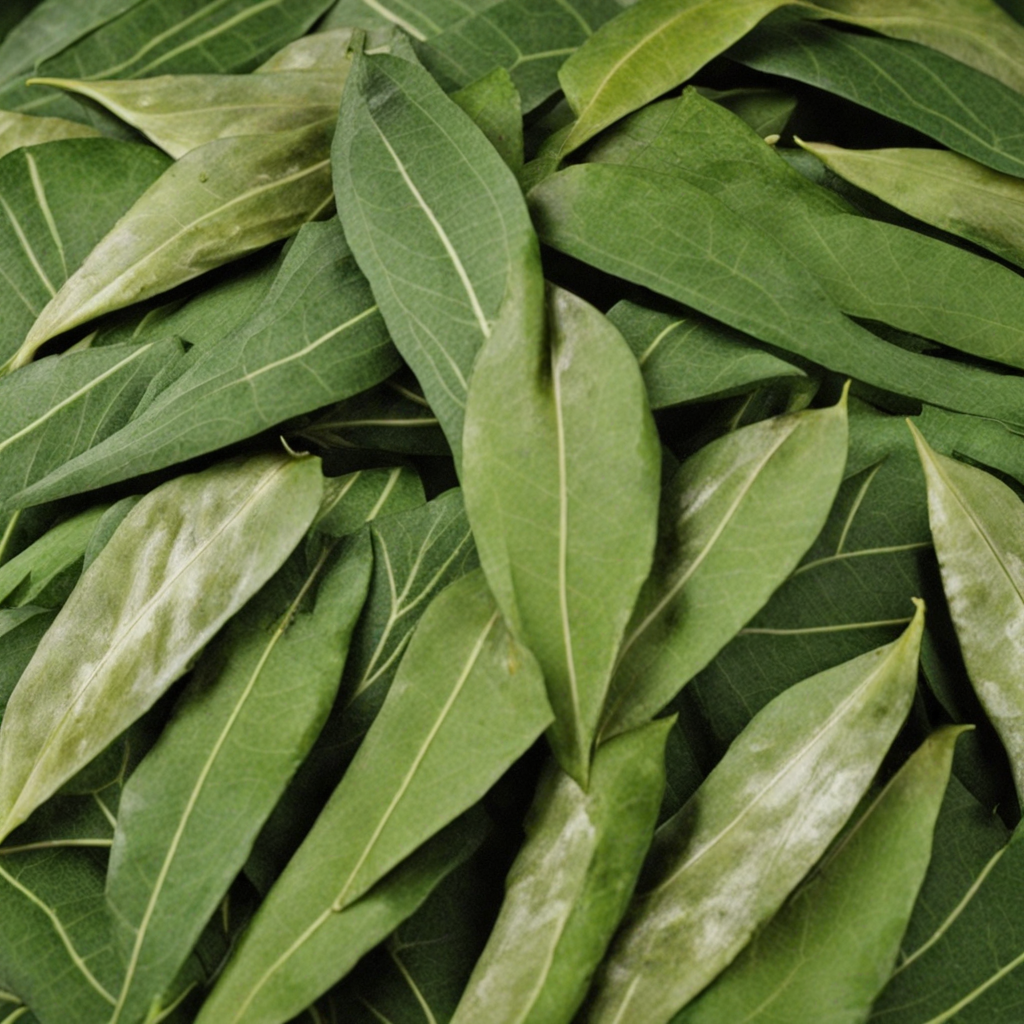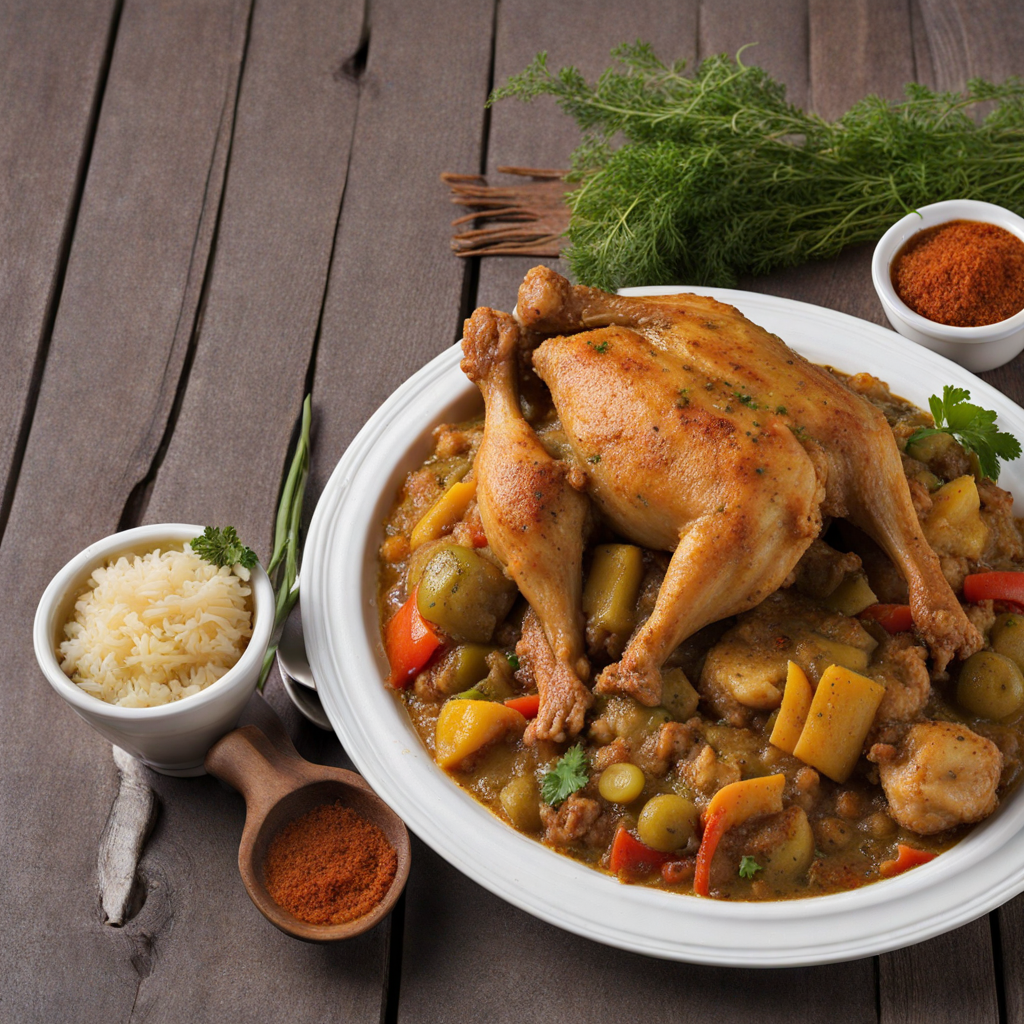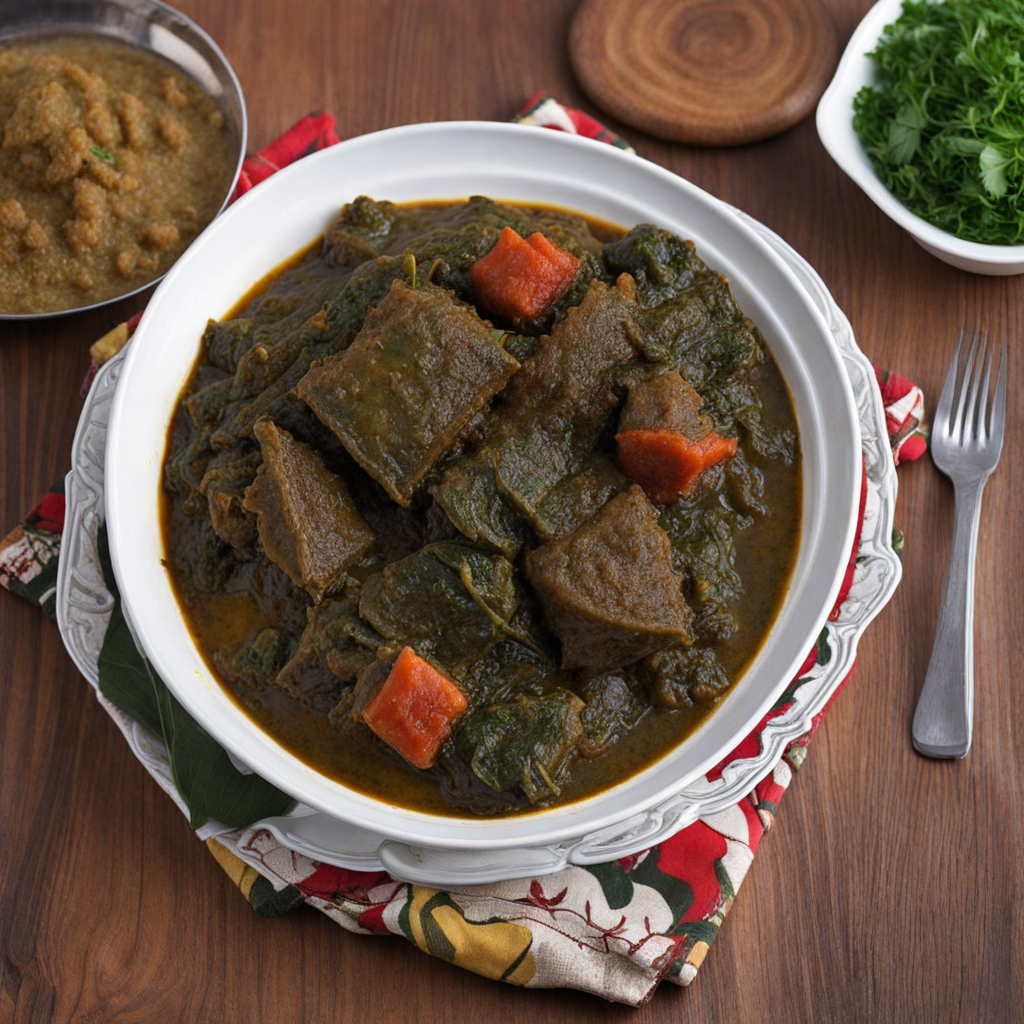Odika
Odika is a traditional dish from Gabon that showcases a unique blend of flavors and textures, making it a must-try for any food enthusiast eager to explore West African cuisine. At its core, Odika is a rich sauce made from ground nuts, typically using a combination of peanuts or cashews, which lends a creamy and slightly nutty profile to the dish. This sauce is often enhanced with local spices and herbs, creating a harmonious balance of savory and aromatic notes that tantalize the taste buds. The depth of flavor is further amplified by the inclusion of smoked or dried fish, which adds a distinct umami character that is both comforting and satisfying. The dish is often paired with a variety of accompaniments, such as boiled plantains, cassava, or rice, allowing diners to experience different textures with each bite. The warmth of the starchy sides complements the richness of the Odika sauce, while the freshness of leafy greens often served alongside introduces a vibrant contrast. This combination not only provides a fulfilling meal but also showcases the diverse agricultural bounty of Gabon, where fresh produce is integral to the local diet. Odika is not just a meal; it’s an experience that reflects the communal spirit of Gabonese dining. Traditionally enjoyed during gatherings and celebrations, sharing a platter of Odika encourages conversation and connection among friends and family. With each spoonful, one can appreciate the cultural significance behind the dish, as well as the artisanal craft of the cooks who prepare it. For those looking to explore new culinary landscapes, Odika offers a delightful journey into the heart of Gabonese flavors, promising a taste that is both exotic and comforting.
How It Became This Dish
The History of Odika: A Culinary Gem from Gabon Odika, a traditional dish hailing from the lush landscapes of Gabon, is a testament to the rich cultural tapestry of Central Africa. This intriguing dish, made primarily from ground nuts or seeds, serves as both a staple food and a symbol of the vibrant culinary heritage of the Gabonese people. Its origins, cultural significance, and evolution over time reflect the intricate relationship between food and identity in this region. #### Origins The roots of Odika can be traced back to the Bantu-speaking peoples of Central Africa, who migrated to the region thousands of years ago. This movement brought with it a diverse array of agricultural practices and culinary traditions. The primary ingredient in Odika is often the African oil palm (Elaeis guineensis) or various types of nuts, including cashews and peanuts. The palm tree is indigenous to West Africa and has been cultivated for centuries, providing not only oil but also a source of sustenance. The use of nuts and seeds in Odika highlights a broader theme in Gabonese cuisine: the reliance on locally sourced ingredients that are both nourishing and versatile. The preparation of Odika typically involves grinding the nuts or seeds into a paste, which is then cooked with a mix of vegetables, often featuring ingredients like cassava leaves, okra, or other local greens. The dish is frequently seasoned with spices and sometimes complemented by fish or meat, creating a hearty meal that is as flavorful as it is nutritious. #### Cultural Significance Odika is more than just a dish; it is an integral part of Gabonese culture, representing unity, tradition, and community. In many Gabonese households, preparing Odika is a collective endeavor, involving family members gathering to prepare the ingredients and cook together. This communal aspect fosters a sense of togetherness and reinforces family bonds, making Odika a dish that is often served during important celebrations and gatherings. In Gabon, food is deeply intertwined with social and cultural identity. Odika is often present during ceremonies such as weddings, funerals, and religious festivals. Its preparation and consumption can serve as a ritualistic practice, connecting generations and honoring ancestral traditions. The dish is a symbol of hospitality, with families often preparing large quantities to share with neighbors and guests, reflecting the Gabonese value of community and generosity. Moreover, Odika embodies the principles of sustainability and respect for the environment, as it utilizes ingredients that are readily available and encourages local agricultural practices. This connection to the land and its resources is a significant aspect of Gabonese culture, where traditional knowledge passed down through generations plays a crucial role in food preparation. #### Evolution Over Time As Gabon has modernized, so too has the preparation and consumption of Odika. The influence of globalization and urbanization has introduced new ingredients and cooking techniques, leading to variations in the traditional dish. In urban areas, for example, you might find Odika prepared with imported spices or adapted to cater to contemporary tastes. Despite these changes, the essence of Odika remains rooted in its traditional preparation methods and the cultural values it embodies. Many Gabonese people continue to celebrate the dish's origins by preparing it using age-old techniques, often prioritizing local and organic ingredients. This blend of tradition and modernity is indicative of a broader trend in African cuisine, where chefs and home cooks alike are creatively reinterpreting traditional dishes while remaining true to their cultural heritage. The introduction of Odika to international food scenes has also contributed to its evolution. As Gabonese cuisine gains recognition on the global stage, chefs are experimenting with Odika, incorporating it into fusion dishes or presenting it in novel ways. This exposure has sparked interest in Gabonese culinary traditions, encouraging a new generation to explore their culinary roots and continue the legacy of dishes like Odika. #### Contemporary Appreciation Today, Odika is celebrated not just as a dish but as a cultural artifact that encapsulates Gabon's rich history and diversity. It has become a point of pride for many Gabonese, symbolizing their connection to the land and their heritage. Efforts to promote Gabonese cuisine, including festivals, culinary workshops, and food tourism, have helped elevate the profile of Odika and other traditional dishes. In the context of the global culinary landscape, Odika stands as a reminder of the importance of preserving indigenous food traditions. As more people seek authentic culinary experiences, the story of Odika serves as a bridge between cultures, fostering understanding and appreciation for Gabon’s unique contributions to the world of food. #### Conclusion Odika, with its deep-rooted origins, cultural significance, and evolving nature, is a dish that encapsulates the essence of Gabonese identity. It reflects the values of community, sustainability, and tradition while also embracing modern influences. As Gabon continues to navigate the complexities of a globalized world, Odika remains a culinary gem that connects the past to the present, celebrating the richness of Gabonese culture and its enduring legacy in the realm of food. Through every bowl of Odika, the spirit of Gabon lives on, nourished by the hands of those who continue to prepare and share this beloved dish.
You may like
Discover local flavors from Gabon


